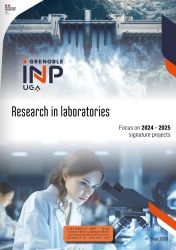Written by Violaine Bigot and Isabelle Chéry
“Prior knowledge” and “Own knowledge” are often asked to be spelled out in an annex to contracts.
Prior knowledge is the knowledge that the laboratory holds before entering the research project and that could be necessary for its completion.
Parallel knowledge is knowledge that could be developed or acquired concurrently and independently of the execution of the project, and which could be assessed as relevant or necessary for its implementation.
Own knowledge includes prior knowledge and parallel knowledge. If new own knowledge is identified during the project, it must either be proposed in writing to the contract partners or submitted to the Steering Committee, as appropriate. If the addition of this new own knowledge is validated by all the parties, either the list of own knowledge established in the appendix will be completed by means of a rider, or, in the case of the steering committee, this new knowledge will be ratified by the parties at the end of the project without making a rider as such.
Please note that prior or proprietary knowledge is neither the publications nor the expertise of the laboratory! It is unpublished algorithms, software, patents, databases or any secret, unpublished know-how. You will find the definition of these terms in article P (P for Intellectual Property).
Why should you pay attention to your own knowledge?
The own knowledge identified in the contract appendix can be used during the project, by you or by the partners, to carry out the different tasks. If the results obtained thanks to this own knowledge are interesting, the partners may wish to use them beyond the research project: this is the challenge for the valorisation and transfer of your research results! In consortia, for example, at the end of the project, the partners can ask for licences to use this own knowledge. These licences can be granted for research purposes but also for industrial exploitation.
Why might this be a problem?
It is possible this own knowledge has already been licensed to a third party. It is therefore necessary to specify in the contract the scope of the rights already granted to this knowledge. This way, the partners are aware of the rights they could benefit from (or not) on this own knowledge during and at the end of the project and know, if need be, to which third party to turn to in order to obtain exploitation rights. The partners may also request that this own knowledge already committed to a third party not be used for the execution of the research project.
In conclusion, own knowledge has a definite influence on the execution of the research project, at the beginning, during and after the end of the contract. It is therefore important to make it explicit with care. DRIVE is at your disposal to determine them and possibly amend them.
A concrete example:
Example:
Assumptions are as follows:
1°) You have obtained a maturation financing (M for Maturation Technico-économique) by the SATT Linksium (S for SATT et L for Linksium). The maturation project integrates previous knowledge, for example, patent application X.
2°) In parallel to this maturation project, you are collaborating with a company, a potential prospect for the exploitation of your technology protected by this patent application X.
? Solution: patent application X must remain available until the end of your maturation project in order to be offered as an exclusive licence to SATT Linksium. This prior knowledge as well as its exclusive licence commitment to SATT Linksium must therefore be clearly mentioned in the “Prior knowledge” appendix of the collaboration contract with the company. The company is thus informed that, in order to obtain exploitation rights on this prior knowledge, it must approach SATT Linksium to negotiate them.
It will also be necessary to be vigilant about the potential generation of its own knowledge within the framework of the maturation project which would be necessary for the completion of the research contract. It is then essential to add them, during the project, to the list of proprietary knowledge in the collaboration contract.
Your Contact at DRIVE: violaine.bigot@grenoble-inp.fr, copy drive.ingenierie@grenoble-inp.fr




